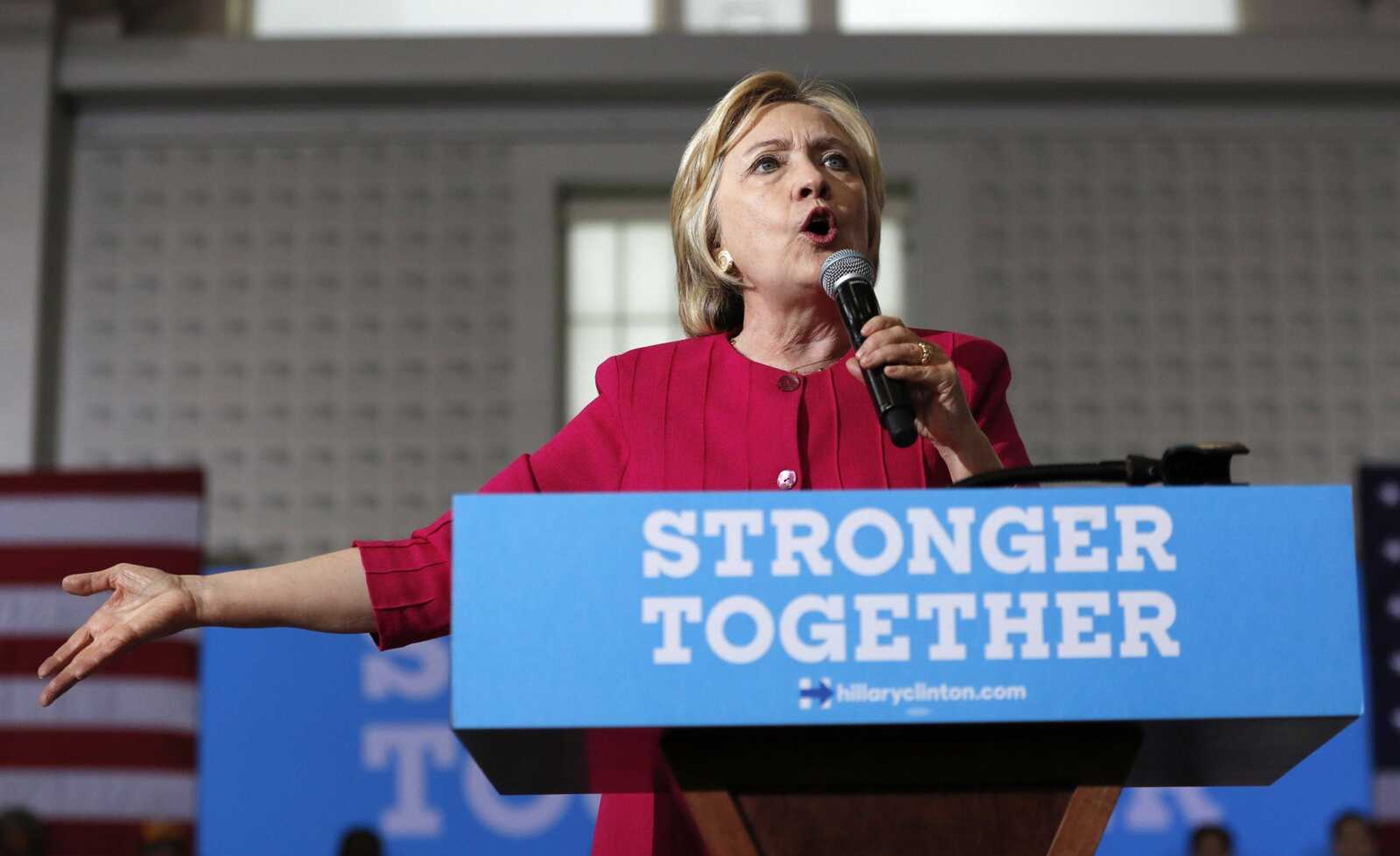Clinton Foundation donors got face time with her at State
WASHINGTON -- More than half the people outside the government who met with Hillary Clinton while she was secretary of state gave money -- personally or through companies or groups -- to the Clinton Foundation. It's an extraordinary proportion indicating possible ethics challenges if elected president...
WASHINGTON -- More than half the people outside the government who met with Hillary Clinton while she was secretary of state gave money -- personally or through companies or groups -- to the Clinton Foundation.
It's an extraordinary proportion indicating possible ethics challenges if elected president.
Donors who were granted time with Clinton included an internationally known economist who asked for her help as the Bangladesh government pressured him to resign from a not-for-profit bank he ran; a Wall Street executive who sought Clinton's help with a visa problem; and Estee Lauder executives who were listed as meeting with Clinton while her department worked with the firm's corporate charity to counter gender-based violence in South Africa.
They are among at least 85 of 154 people with private interests who met or had phone conversations scheduled with Clinton and gave to her family's charities, according to a review of State Department calendars released so far to The Associated Press.
Combined, the 85 donors contributed as much as $156 million. The 154 does not include U.S. federal employees or foreign government representatives.
The AP's findings represent the first systematic effort to calculate the scope of the intersecting interests of Clinton Foundation donors and people who met with Clinton or spoke to her by phone about their needs.
The meetings between the Democratic presidential nominee and foundation donors do not appear to violate legal agreements Clinton and former president Bill Clinton signed before she joined the State Department in 2009.
But the frequency of the overlaps shows the intermingling of access and donations and fuels perceptions giving the foundation money was a price of admission for face time with Clinton. Her calendars and emails released as recently as this week describe scores of contacts she and her top aides had with the foundation's donors.
Clinton's campaign said the analysis was flawed because it did not include in its calculations meetings with foreign diplomats or U.S. government officials, and the meetings AP examined covered only the first half of Clinton's tenure as secretary of state.
"It is outrageous to misrepresent Secretary Clinton's basis for meeting with these individuals," spokesman Brian Fallon said. He called it "a distorted portrayal of how often she crossed paths with individuals connected to charitable donations to the Clinton Foundation."
Donald Trump's vice-presidential candidate, Mike Pence, said Tuesday the overlaps identified by AP were "further evidence of the pay-to-play politics at her State Department" and called for a special prosecutor to investigate.
Last week, the Clinton Foundation moved to head off ethics concerns about future donations by announcing changes if she is elected. Those changes would not affect more than 6,000 donors who have provided the Clinton charity with more than $2 billion in funding since its creation in 2000.
"There's a lot of potential conflicts and a lot of potential problems," said Douglas White, an expert on not-for-profits at Columbia University. "The point is, she can't just walk away from these 6,000 donors."
Fallon said earlier Tuesday the standard set by the Clinton Foundation's ethics restrictions was "unprecedented, even if it may never satisfy some critics."
Muhammad Yunus, a Bangladeshi economist who won the 2006 Nobel Peace Prize for pioneering low-interest "microcredit" for poor business owners, met with Clinton three times and talked with her by phone during a period when Bangladeshi government authorities investigated his oversight of a nonprofit bank and ultimately pressured him to resign from the bank's board. Throughout the process, he pleaded for help in messages routed to Clinton, and she ordered aides to find ways to assist him.
Grameen America, the bank's nonprofit U.S. flagship, which Yunus chairs, has given between $100,000 and $250,000 to the foundation -- a figure that bank spokeswoman Becky Asch said reflects the institution's annual fees to attend CGI meetings. Another Grameen arm chaired by Yunus, Grameen Research, has donated between $25,000 and $50,000.
In another case, Clinton was host at a September 2009 breakfast meeting at the New York Stock Exchange that listed Blackstone Group chairman Stephen Schwarzman as one of the attendees. Schwarzman's firm is a major Clinton Foundation donor, but he personally donates heavily to GOP candidates and causes. The next day, according to Clinton emails, the State Department was working on a visa issue at Schwarzman's request. In December that same year, Schwarzman and his wife, Christine, sat at Clinton's table during the Kennedy Center Honors.
Blackstone donated between $250,000 and $500,000 to the Clinton Foundation. Eight Blackstone executives also gave between $375,000 and $800,000 to the foundation. And Blackstone's charitable arm has pledged millions of dollars in commitments to three Clinton Global aid projects ranging from the U.S. to the Mideast. Blackstone officials did not make Schwarzman available for comment.
And in June 2011, Clinton met with Nancy Mahon of MAC AIDS, the charitable arm of MAC Cosmetics, which is owned by Estee Lauder. The meeting occurred before an announcement about a State Department partnership with MAC AIDS to raise money to finance AIDS education and prevention.
The MAC AIDS fund donated between $5 million and $10 million to the Clinton Foundation and several million more in commitments to programs through the Clinton Global Initiative.
Connect with the Southeast Missourian Newsroom:
For corrections to this story or other insights for the editor, click here. To submit a letter to the editor, click here. To learn about the Southeast Missourian’s AI Policy, click here.










